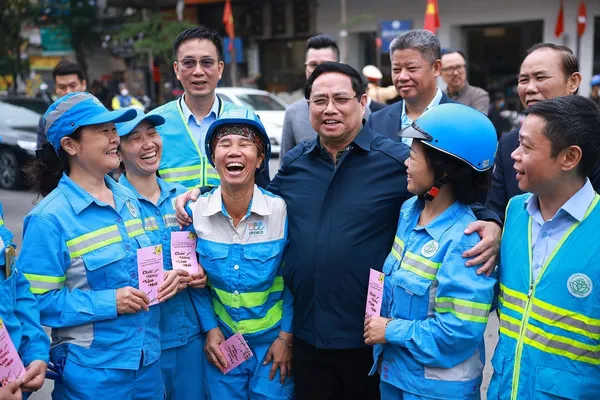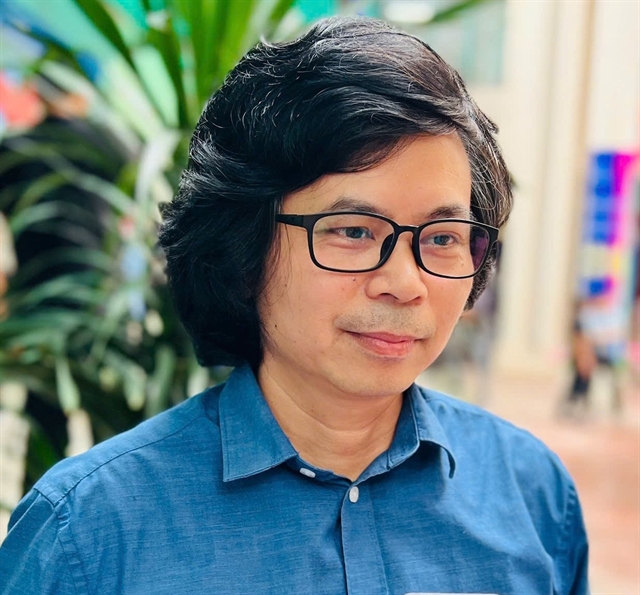 Life & Style
Life & Style

 |
| Filmmaker Trịnh Quang Tùng, Deputy Chairman of the Central Documentary and Scientific Film Studio. VNS Photo Nguyễn Bình |
The 14th European-Vietnamese Documentary Film Festival is being held in Hà Nội and HCM City, organised by the European Union National Institutes for Culture (EUNIC) in collaboration with the Central Documentary and Scientific Film Studio.
The studio's Deputy Chairman Trịnh Quang Tùng is an established filmmaker. He won the Golden Lotus for his documentary Bướm Côn Trùng Cánh Vẩy at the Việt Nam National Film Festival.
Tùng discusses the development of Vietnamese documentaries in recent years.
Many documentary festivals held in recent years have attracted strong support. Why do you think that is?
Fully-seated film screenings at the documentary festivals are a good sign for Vietnamese documentary filmmakers. I think it is thanks to a proactive approach to the audiences. Filmmakers have changed their thinking in documentary making. The documentaries focus on daily life and they are human interest.
The topics encompass diverse subjects that include normal stories or other issues that the world is concerned about such as gender equality, children, the environment and politics.
In the past, we have had good documentaries winning international prizes including Chuyện Tử Tế (The Story of Kindness) and Tiếng Vĩ Cầm Ở Mỹ Lai (The Sound of Violin in Mỹ Lai) by Trần Văn Thủy winning Silver Dove award at the Leipzig International Film Festival and Golden Medal at 44th Asia - Pacific Film Festival.
Presently, independent documentaries by young filmmakers have been honoured at international festivals such as Những Đứa Trẻ Trong Sương (Children of The Mist) by Hà Lệ Diễm. It won Best International Film at this year's Docaviv Film Festival in Israel and Best Directing at the International Documentary Film Festival (IDFA) in the Netherlands.
It seems there is still a large gap between domestic and international films. Why is that?
Each country has a different filmmaking styles. Foreign documentary filmmakers no longer use narration but they let characters speak in the documentary. Meanwhile, the Vietnamese documentaries have had narration.
Thanks to cultural exchange programmes between Việt Nam and other countries in recent years, Vietnamese filmmakers have access to international filmmakers making the documentary without narration.
What is the main difference between the Vietnamese documentaries and those from other countries?
The Vietnamese documentary is short, about 25-30 minutes or a maximum of 50 minutes. And almost they are produced by State-owned studios for propaganda purposes. The foreign documentary is about 80-100 minutes in length and tell stories in one documentary.
Capital investment for making a good documentary is very important. I see in other countries, a documentary takes a few years to shoot but in Việt Nam it is only a few months.
I say that the quality of the documentary mostly depends on money. Shooting in one location is quite different than in many locations.
What is the main obstacle that filmmakers face?
Distribution. It is a big challenge for both filmmakers from State-owned studios and independent ones. Unlike blockbusters or television series, the documentary is not a money-spinner.
We lack a long-term investment strategy for the documentary production. Plus, it needs to have proper policies to promote and create favourable conditions for the filmmakers including independents.
The government and relevant bodies should have coordination and listen to opinions suggested by the filmmakers with a view to have an effective and sustainable strategy for the documentary development.
At documentary festivals in recent years, there have been shows for independent documentaries. What are your thoughts on these?
Independent filmmaking is a trend that Vietnamese filmmakers want to approach. Making the independent documentary, the filmmakers raise their voices. They are free to create and are not urged to complete on schedule. Independent documentaries are personal characteristics.
I wish to have management changes aimed at encouraging the State-owned filmmakers to use independent styles. And I hope to have investment from other resources to support the independent filmmakers making documentary with propaganda purpose.
Making a good documentary is the most important regardless of it is made by the State-owned or independent filmmakers.
Showing the independent documentaries at the festival is a good chance for the filmmakers to exchange ideas. We want to inspire young filmmakers. - VNS




